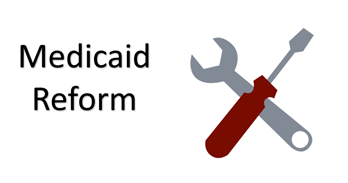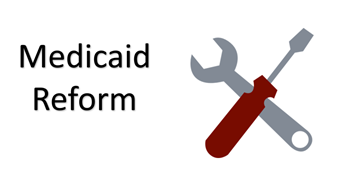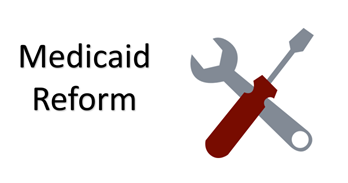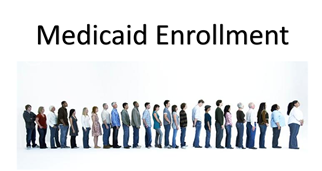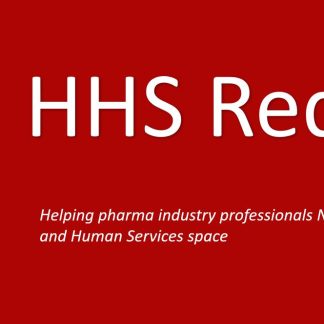MM Curator summary
Iowa is one of several states looking to reduce fraud in food stamps and related benefits programs, and Democrats oppose the effort.
The article below has been highlighted and summarized by our research team. It is provided here for member convenience as part of our Curator service.
Iowans may soon need to undergo added verification steps, including checks of their household assets, to receive food stamps and other benefits.
The Senate approved the bill, Senate File 389, Tuesday night. It would also instruct the Iowa Department of Human Services to use a computer system to conduct automatic eligibility checks for Iowans on other public assistance programs including Medicaid. Senate Republicans say that step will streamline the process and reduce fraud.
But Democrats said the measure would trip up needy Iowans seeking food assistance, which could be more painful given coronavirus-related needs. The additional computerization is also unnecessary, they said, because the state is already working on updating its system.
The Iowa Senate passed the bill on a 30-18 party-line vote Tuesday evening but it faces an uncertain future in the Republican-controlled Iowa House, where similar “welfare reform” measures have failed to advance in past years.
More:Iowa hunger-fighting organizations calling on Legislature for more support
Sen. Jason Schultz, R-Schleswig, who has introduced similar bills over the past four years, said the state has begun to recognize the need for computerization over the past few years. While Iowa DHS has been working on computerizing the system, he wants the state to go further. If it became law, he said Iowa would decrease its error rate for food assistance payments.
“We are moving in the right direction, but this bill would actually move us there quite a bit more quickly,” Schultz said.
Democrats, however, said adding additional food stamp requirements such as an “asset test” would make it more difficult for Iowans in need.
“The more rigorous it is, the harder it is to sign up for, and I think it’s probably your intention,” Sen. Liz Mathis, D-Hiawatha, said Tuesday.
The nonpartisan Legislative Services Agency estimates approximately 1% of Iowans receiving benefits would see their benefits canceled due to discrepancies — equal to 5,999 Medicaid recipients, 793 Children’s Health Insurance Program recipients, 68 Family Investment Program recipients and 1,466 recipients of Supplemental Nutrition Assistance Program, often referred to as food stamps.
What the bill does: Computerizes identity checks for Medicaid, food stamps
If the bill becomes law, it would require Iowa’s Department of Human Services to either contract with a third-party vendor or establish its own computer system to conduct identity verification and other services for the state’s public assistance programs by July 1 of next year
The system would use a variety of federal and state records to verify eligibility of Iowans applying for assistance programs.
If the state contracts with a third-party vendor for the service, the vendor would refer cases that don’t pass through to Iowa DHS. When Iowa DHS finds a discrepancy, the agency would provide written notice to the applicant, who would have 10 days to respond.
COVID-19 assistance:How low-income Iowans can get help with overdue utility and rent bills
A failure to respond in a “timely manner” would result in termination of benefit enrollment. Iowa DHS would refer suspected fraud cases to the Iowa Department of Inspections and Appeals for review.
“It does not give third-party vendors any opportunity to kick anybody off,” Schultz said during a subcommittee meeting last week. “All it is is a tool — a high-tech, efficient tool — for DHS to scrub the eligibility (of) the list of recipients and find those who don’t fit in.”
Schultz said he believes “85% to 90% of recipients would slide through” the system without needing to provide any additional documentation.
Bill requires ‘asset test’ for food assistance
Schultz’s bill would change eligibility determination for the Supplemental Nutrition Assistance Program. Under the bill, Iowans would need to pass an asset test before qualifying for food assistance.
An asset test calculates the value of an applicant’s possessions — including bank accounts, real estate and secondary vehicles — to determine the person’s eligibility.
The asset test would be a departure from current practice.
Iowa is among the states that allow people to qualify for SNAP benefits through “broad-based categorical eligibility,” which allows people who already qualify for other specified programs to receive food stamps. Iowans who qualify under categorical eligibility currently do not need to undergo an asset test, but the bill would change this.
Overall, the bill would cost the state money up-front but reduce costs in future years, according to the nonpartisan Legislative Services Agency. A report estimates the bill would increase state costs by $1.5 million next fiscal year but save the state $11.8 million per year after that.
Critic: Measure is ‘creating more barriers and kicking people off programs’
Senate Republicans and the groups Americans for Prosperity, Iowans for Tax Relief and the Opportunity Solutions Project support the bill, saying it will increase efficiency and trust in the state’s government.
But several local service agencies and health care groups oppose it. They say the moves might knock people off the program who aren’t native English speakers, who struggle with financial literacy or who aren’t tech-savvy.
“At a time when we’re seeing increased levels of food insecurity across the state of Iowa, we should really be exploring ways to increase access to food assistance benefits, not creating more barriers and kicking people off programs for which they’re eligible for,” said Luke Elzinga, the communications and advocacy manager with the Des Moines Area Religious Council Food Pantry Network, said during a subcommittee meeting last week.
Hunger in Iowa: How to find help if you need food assistance
Elzinga said he’s concerned about the asset test for food stamps. Among the assets that count toward the limit are second vehicles, which he said could disqualify families who need more than one vehicle for work, especially in rural areas.
Critics have also said the moves are likely redundant. Janee Harvey, the Iowa DHS division administrator of Adult, Child and Family Services, told lawmakers at last week’s subcommittee hearing the department is “meaningfully engaged in these activities already.”
The state is preparing to comply with federal requirements to participate in the National Accuracy Clearinghouse — a national system meant to prevent people from receiving food assistance in more than one state — by December, she said. The state is also considering a one-year free trial of an income verification product through Equifax, she said.
Democrats on Tuesday introduced three amendments, including one that would have eliminated the food stamp portion of the bill, and another that would have instructed Iowa DHS to compile a list of the employers of Iowans on Medicaid.
Multiple Democrats on Tuesday pointed to the increase in food insecurity during the COVID-19 pandemic.
“I’m sure there’s a bill coming afterwards to fund soup kitchens and food banks because right now we’re overwhelmed,” said Sen. Amanda Ragan, D-Mason City, who directs the Community Kitchen of North Iowa and Mason City Meals on Wheels.
Schultz said Democrats are blowing many of the concerns out of proportion. The intent of the bill is not to save money by kicking eligible people off of benefits, he said.
Schultz told the Des Moines Register last week that he’s optimistic the public assistance oversight bill will receive more consideration in the House than in past years.
This year, Republicans widened their majority in the House to 59-41, picking up six seats.
“Every single year, I feel better,” he said. “The idea itself is becoming normalized.”
Ian Richardson covers the Iowa Statehouse for the Des Moines Register. Reach him at irichardson@registermedia.com, at 515-284-8254, or on Twitter at @DMRIanR.
